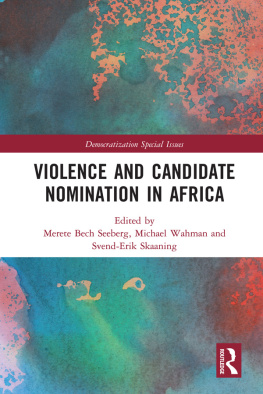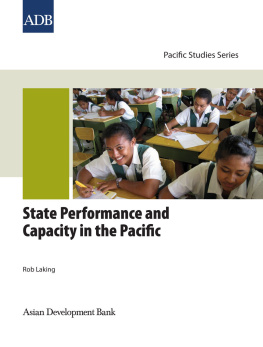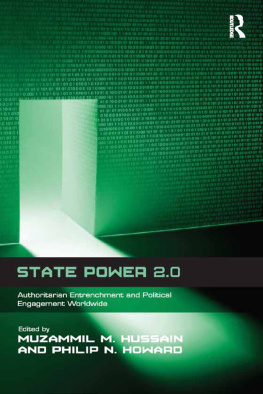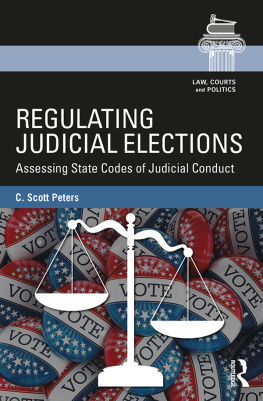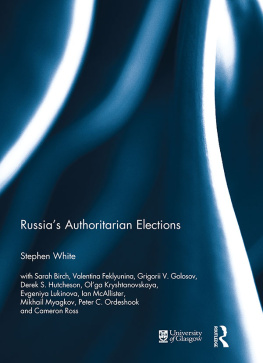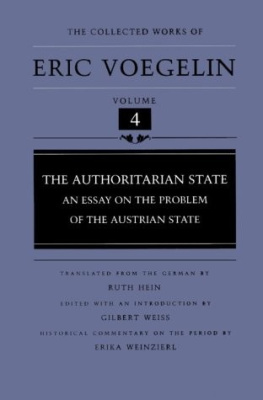State Capacity, Economic Control, and Authoritarian Elections
Although the phenomenon of authoritarian elections has been a focal point for the literature on authoritarian institutions for more than a decade, our understanding of the effect of authoritarian elections is still limited.
Combining evidence from cross-national studies with studies on selected cases relying on recent field work, this book suggests a solution to the paradox of authoritarian elections. Rather than focusing on authoritarian elections as a uniform phenomenon, it focuses on the differing conditions under which authoritarian elections occur. It demonstrates that the capacities available to authoritarian rulers shape the effect of elections and high levels of state capacity and control over the economy increase the probability that authoritarian multi-party elections will stabilize the regime. Where these capacities are limited, the regime is more likely to succumb in the face of elections. The findings imply that although multi-party competition and state strength may be important prerequisites for democracy, they can under some circumstances obstruct democratization by preventing the demise of dictatorships.
This text will be of key interest to scholars, students, and practitioners of democratization, and to those who study autocracy and electoral authoritarianism, as well as comparative politics more broadly.
Merete Bech Seeberg is Assistant Professor at Aarhus University, Denmark.
Routledge Studies in Elections, Democracy and Autocracy
Series Editors:
Pippa Norris, Harvard University, USA, and the University of Sydney, Australia
Carolien van Ham, the University of New South Wales, Australia.
This series addresses the quality of elections, how and why electoral contests fall short of international standards, and the implications of flawed elections for democracy and autocracy. The series is published in association with the Electoral Integrity Project.
1 Election Administration and the Politics of Voter Access
Kevin Pallister
2 Electoral Rights in Europe
Advances and Challenges
Edited by Helen Hardman and Brice Dickson
3 Electoral Integrity and Political Regimes
Actors, Strategies and Consequences
Edited by Holly Ann Garnett and Margarita Zavadskaya
4 State Capacity, Economic Control, and Authoritarian Elections
Merete Bech Seeberg
For more information on this series please visit: www.routledge.com/
Routledge-Studies-in-Elections-Democracy-and-Autocracy/book-series/REDA
First published 2018
by Routledge
2 Park Square, Milton Park, Abingdon, Oxon OX14 4RN
and by Routledge
711 Third Avenue, New York, NY 10017
Routledge is an imprint of the Taylor & Francis Group, an informa business
2018 Merete Bech Seeberg
The right of Merete Bech Seeberg to be identified as author of this work has been asserted by her in accordance with sections 77 and 78 of the Copyright, Designs and Patents Act 1988.
All rights reserved. No part of this book may be reprinted or reproduced or utilised in any form or by any electronic, mechanical, or other means, now known or hereafter invented, including photocopying and recording, or in any information storage or retrieval system, without permission in writing from the publishers.
Trademark notice: Product or corporate names may be trademarks or registered trademarks, and are used only for identification and explanation without intent to infringe.
British Library Cataloguing-in-Publication Data
A catalogue record for this book is available from the British Library
Library of Congress Cataloging-in-Publication Data
Names: Seeberg, Merete Bech, author.
Title: State capacity, economic control, and authoritarian elections / Merete
Bech Seeberg.
Description: Abingdon, Oxon ; New York, NY : Routledge, 2018. | Series:
Routledge studies in elections, democracy and autocracy ; 4 | Includes
bibliographical references and index.
Identifiers: LCCN 2017051285 | ISBN 9781138202696 (hardback) |
ISBN 9781315473413 (ebook)
Subjects: LCSH: AuthoritarianismEconomic aspects. | Elections
Economic aspects. | VotingEconomic aspects. | Democratization
Economic aspects. | Economic developmentPolitical aspects.
Classification: LCC JC480 .S4 2018 | DDC 324.9dc23
LC record available at https://lccn.loc.gov/2017051285
ISBN: 978-1-138-20269-6 (hbk)
ISBN: 978-1-315-47341-3 (ebk)
Typeset in Times New Roman
by Apex CoVantage, LLC
Elections. They are the cornerstone of any democracy; yet the existence of elections by no means guarantees citizens an actual, democratic choice. In too many places on our globe, elections have been bent so thoroughly out of shape that the reminiscence of a democratic competition is fleeting. At the age of 18 years and three days, I voted for the first time in local and parliamentary elections in Denmark my proud father brought along his camera and I still have the picture of me leaving the voting booth with a big smile on my face. I have later observed elections in Denmark and around the world, but at 18, I was unaware of the concept of electoral authoritarianism . Authoritarian elections first came to my attention a few years later when I was a student at the London School of Economics (LSE). I crisscrossed the LSE library reading everything I could find on the topic and was intrigued by Beatriz Magaloni and Kenneth Greenes books on Mexico in the twentieth century describing voting experiences very different from what I had grown up with. How could some leaders thoroughly control electoral processes and outcomes? The question became the focal point of my PhD studies and eventually of this book.
I am very grateful to the many people who have helped me along the way. At the Department of Political Science, Aarhus University, I have found what I suspect is one of the best research and work environments that the world of academia has to offer. I wish to thank the department for financial support for my endeavors ranging from stat courses to field work. My dissertation advisors, Jrgen Elklit and Svend-Erik Skaaning, have been encouraging, supportive and constructive in their criticism throughout the process. The members of my committee, Jrgen Mller, Gerry Munck, and Carl Henrik Knutsen have expertly and generously advised me on how to turn a thesis into a book. A range of colleagues in Aarhus have commented on parts of the manuscript along the way, and I am thankful to David Andersen, Mette Kjr, Lasse Rrbk, Jakob Tolstrup, the entire comparative politics section, and the excellent PhD group. I am also indebted to Annette Andersen for her excellent and speedy editing work.
Along the way, I have benefited from visiting fellowships in rewarding research environments. Larry Diamond kindly hosted me at the Center for Democracy, Development, and the Rule of Law at Stanford University. Pippa Norris, who along with Carolien van Ham has also supported me as editor on the Routledge series Elections, Democracy, and Autocracy , hosted me at the Electoral Integrity Project at University of Sydney. During these stays abroad and at international conferences and workshops, the manuscript has benefited from conversations with or comments from Rasmus Fonnesbk Andersen, Jason Brownlee, Aurel Croissant, Daniella Donno, Francis Fukuyama, Barbara Geddes, Kenneth Greene, Judith Kelley, Staffan Lindberg, Beatriz Magaloni, Michael Miller, Lise Rakner, Lars Svsand, Michael Wahman, Joseph Wright, and a number of other brilliant junior and senior scholars in the field. Finally, a very special thank you goes to the many Zimbabweans who openly and patiently shared their wisdom and stories with me.


